
General Assembly and Youth: Maho Sugihara, Permanent Mission of Japan to the United Nations
Established in 1945, the General Assembly of the United Nations occupies a central position as the main deliberative, policymaking and representative organ of the Organization. It provides a unique forum for multilateral discussion of the full spectrum of international issues covered by the Charter. In line with this year’s General Assembly session, with its General Debate beginning on 21 September 2021, UNAI has produced a series of video interviews with young staff working for the Permanent Missions to the United Nations and for the Organization.
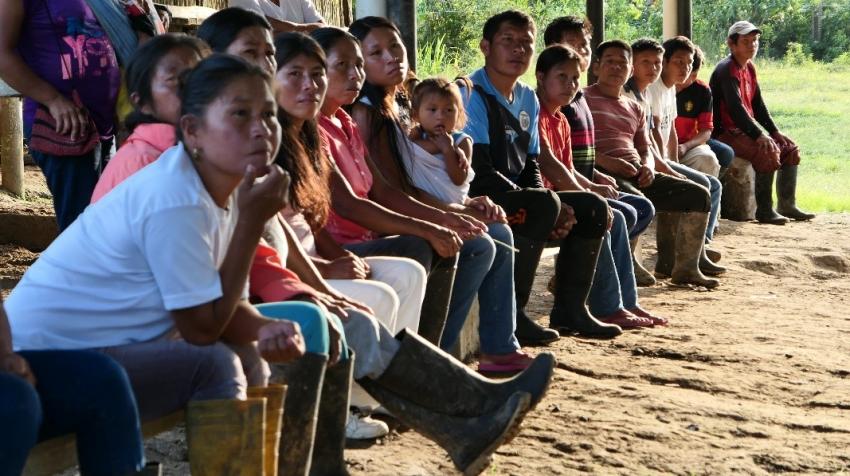
University Partners with Indigenous Community in the Ecuadorian Amazon to Ensure Access to Water and Sanitation
Ensure access to water and sanitation for all is a specific call for action as per the Sustainable Development Goal 6. Moreover, according to a General Comment issued by the UN Committee on Economic, Social and Cultural Rights, access to safe and potable water and adequate sanitation, is a critical component of the human right to health.

Millennium Fellow Kimberley Bates: Achieving Peace through Storytelling
The United Nations Academic Impact and the Millennium Campus Network (MCN) are proud to partner on the Millennium Fellowship, a semester-long leadership development program that helps students design and implement community-level initiatives to promote sustainability and help others in need.
Kimberley Bates, a Millennium Fellow for the Class of 2020, aspires to bring young people together through the concept of “positive alternative narrative”. Her Millennium Fellows Project focuses on SDG16 : Peace, Justice and Strong Institutions.
It was a sense of emptiness that brought Kimberley, a university student studying criminology in Australia, on the Millennium Fellowship Programme.

Exploring Effects on Mental Health, Working Conditions and Living Habits of the COVID-19 Pandemic
The COVID-19 pandemic and associated societal restrictions such as lockdowns and movement limitations, have impacted many areas in society as well as aspects of individual’s work and private life. People have been affected in disparate ways, due to occupation, socioeconomic situation and other variables. For example, depending on the requirements for physical presence at work, and real-life interpersonal contact, contra possibilities to telework, people have experienced different types of changes in their day-to-day lives.
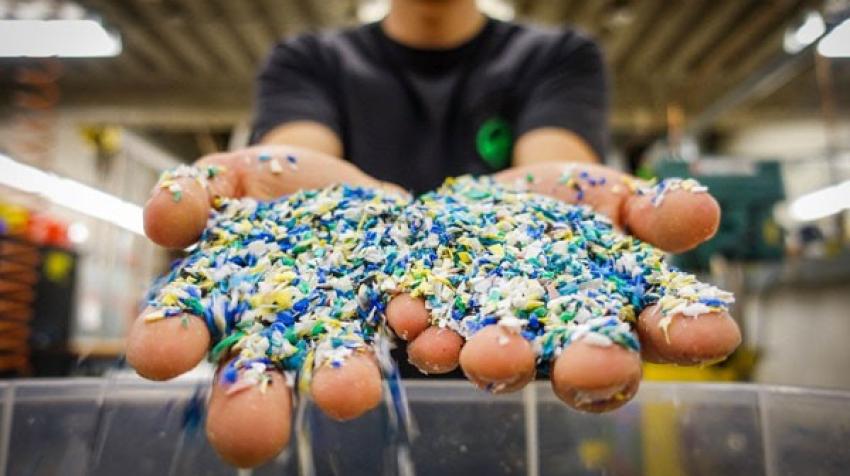
University Team Works to Unlock the Recycling Potential of Ocean Plastics
The forested coastlines of Afognak Island, part of the Kodiak Archipelago in Alaska, seem at first glance to be pristine and unspoiled. The miles of deserted beaches being left mostly in the care of the island’s brown bears and Roosevelt elk. Unfortunately, that perception is far from accurate, due to the island’s location along the North Pacific Gyre – an enormous ocean current swirling counterclockwise across the Pacific Ocean north of the Equator which deposits hundreds of thousands of kilos of the world’s ocean plastics on its beaches each year.
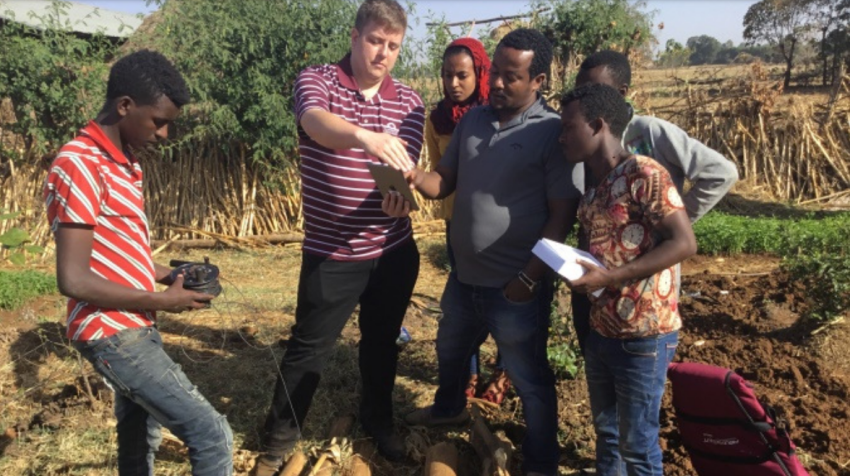
Improving Water and Food Security in Ethiopia Through Research with a People-Centered Approach
The question of how science, research, and study address challenges, pinpoint innovative solutions and reach people in need, is an issue of concern for academic institutions. On that note, the School of Engineering of the University of Connecticut, a UNAI member institution in the United States, is leading a group of researchers to tackle how scientific knowledge is disseminated and applied in their Water and Food Security, Partnerships for International Research and Education (PIRE) project, funded by the National Science Foundation.

Millennium Fellow Monica Gbuchie: Promoting Women’s Rights in Nigeria
The United Nations Academic Impact and the Millennium Campus Network (MCN) are proud to partner on the Millennium Fellowship, a semester-long leadership development program that helps students design and implement community-level initiatives to promote sustainability and help others in need.
Monica Gbuchie, a medical student at Niger Delta University in Nigeria and a Millennium Fellow for the Class of 2020, aspires to promote sexual and reproductive health and women’s rights in underserved communities. Her Millennium Fellows Project focuses on SDG 3: Good Health and Well-being and SDG 5: Gender Equality.
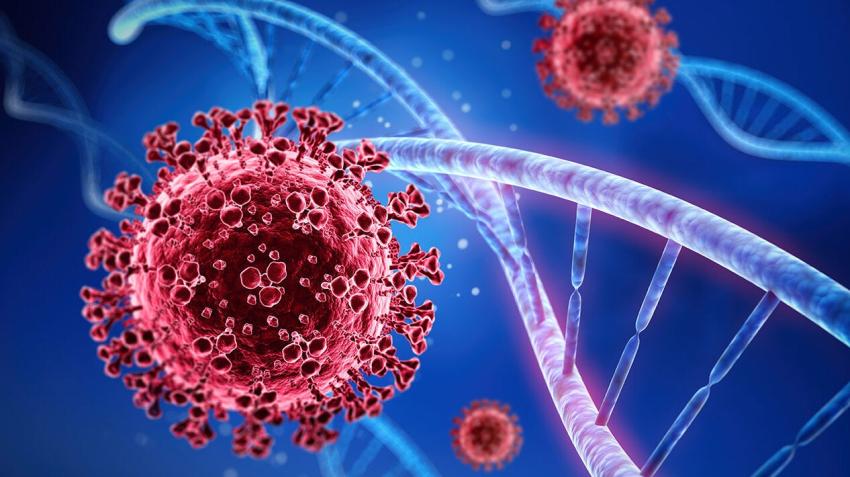
Universities Create New Epidemiological Model to Study COVID-19 Dynamics
The COVID-19 pandemic is one of the greatest and most serious issues of our times, requiring several approaches to deal with it successfully and effectively. Consequently, it is very important to understand the biological mechanisms of virus propagation, as well as the governing diffusion dynamics. These dynamics can be studied using the notion of universality, according to which different systems or classes of systems can demonstrate the same dynamic behavior and dynamical features, regardless of underlying mechanisms and dynamic details.
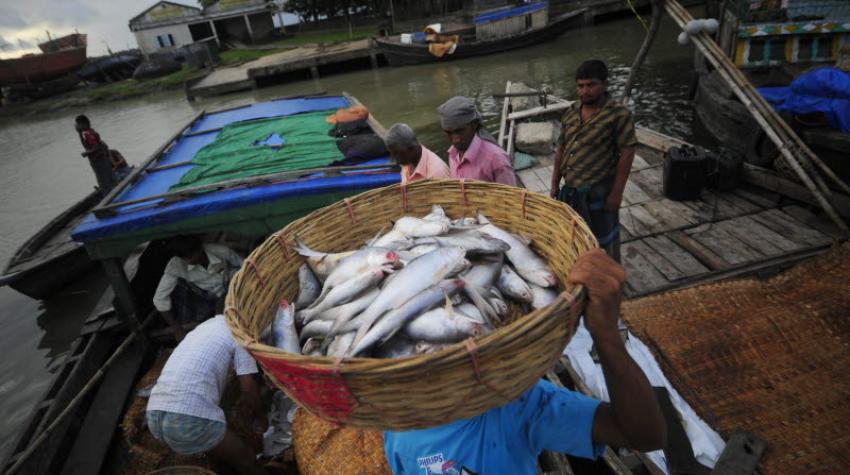
Measuring Impact of COVID-19 on the Socio-Ecological System of the Bay of Bengal
The marine fisheries sector constitutes a critical element for the economy of Bangladesh, a country where more than 17 million people work in this sector, comprising about 11% of the population. Fish plays a crucial role in the average food consumption and is an important source of protein. While within the marine fisheries sector, small-scale fisheries account for the biggest share of fish production, they are also one of the most vulnerable groups in the industry, facing a number of challenges -including poverty-, exacerbated by the COVID-19 pandemic and the climate crisis.
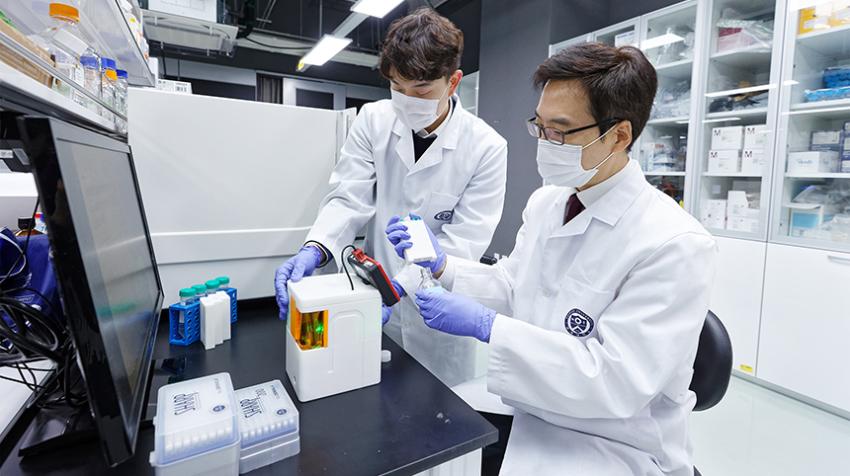
University Research Team Develops High-Speed nanoPCR Technology to Diagnose COVID-19
During the initial wave of the COVID-19 global pandemic back in 2020, the Republic of Korea suffered from an explosive peak in cases. It provoked the necessity of quick, massive diagnosis tests and isolation means responding to the soaring infection numbers. To make a breakthrough that could alleviate the concerns of the authorities and also the population, it was inevitable to diminish the fatality rate by developing enhanced diagnostic capacities and isolating the infected individuals in the absence of vaccination.

UN Secretary-General Highlights Importance of Universities during the IAUP Triennial Conference
On 29 July 2021, the Secretary-General of the United Nations, Antonio Guterres, highlighted during his message to the International Association of University Presidents Triennial Conference, the importance of institutions of higher education within the current global context. See the full text of the message, below:
The world is experiencing a challenge of enormous proportions - from the global health crisis caused by the COVID-19 pandemic to the climate crisis. We have all been affected.
And yet, these crises have created opportunities to enhance our resilience, strengthen our solidarity, and showcase solutions through the diverse work of universities.

Recycling Paper Waste to Make Pencils: An Eco-Friendly Project by Engineering Students in India
Pencils, an ubiquitous tool around the world massively used by students, particularly those enrolled in primary and secondary education, are normally not the product of a recycling process. Yet, target 12.5 of the Sustainable Development Goals calls to “substantially reduce waste generation through prevention, reduction, recycling and reuse”. In light of this, but also given the environmental impact of the production of wooden pencils, students from the Rajalakshmi Engineering College, a UNAI member institution in India, developed an innovative solution.
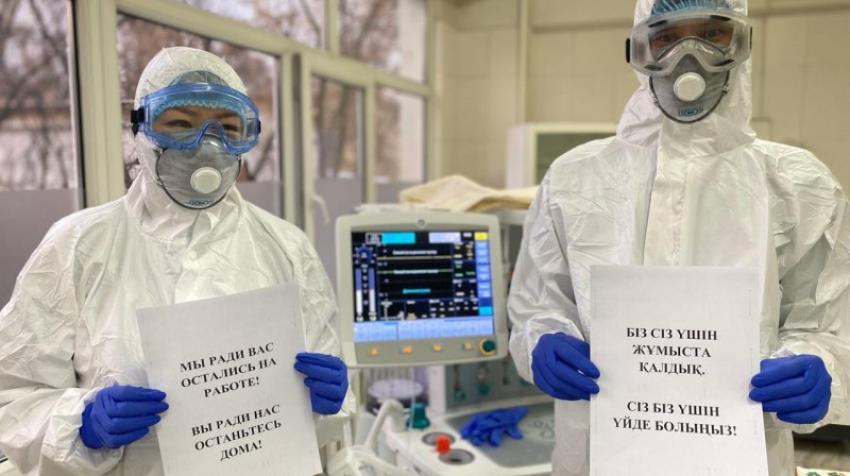
Medical Students in Kazakhstan Volunteer to Fight COVID-19 at the Forefront
During the course of the COVID-19 pandemic, the Kazakhstani healthcare system has been facing a number of challenges. One of the most acute problems at the peak of the crisis was the staffing of medical institutions. In this period, the integration of medical education and practical medicine should be especially noted. From day one, Astana Medical University, a UNAI member institution in Kazakhstan, has been actively involved by not dividing the educational process and direct assistance in the fight against the virus.
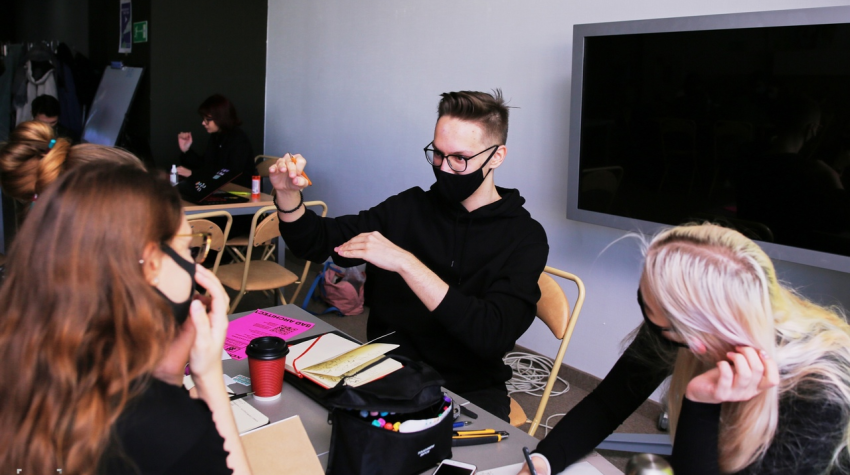
Promoting Employment by Connecting Students with Companies in the Russian Far East
In these uncertain times, many institutions of higher education are re-shaping traditional concepts of how they see themselves, to provide their students with not only theoretical but also practical knowledge and skills, useful for their future career prospects, to enhace their possibilities of getting a job after they finish their studies. This is even more challenging given the circumstances derived from the socioeconomic consequences of the COVID-19 pandemic around the world.

Refugees in Higher Education: Aliny Wa Sibomana, Rwanda – Canada
When you become a refugee – a person who has escaped from their own country for political, religious, or economic reasons or because of a war - they lose not only a home. You feel a part of your identity falling off, while the strong bonds built with friends and families back home are also lost along the way. You are suddenly placed in a new environment with no one to rely on. Just imagine how much courage it takes to rebuild your life from scratch.
To commemorate the World Refugee Day on 20 June, the United Nations Academic Impact (UNAI) has produced a series of podcasts and articles, bringing together stories of refugees from Afghanistan, Thailand/Myanmar, Nepal/Bhutan, Haiti and Rwanda.
